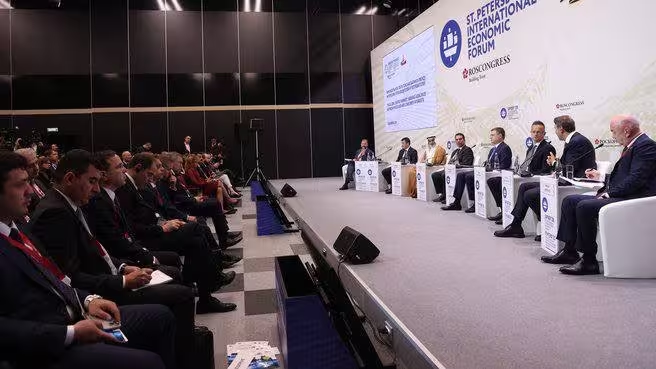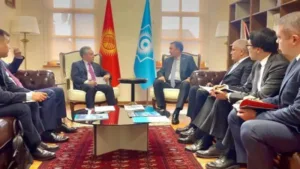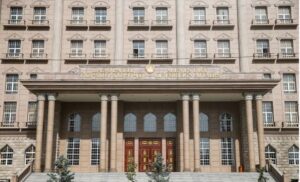Uzbekistan’s Deputy Prime Minister Jamshid Khodjaev outlined the country’s energy transition strategy during a panel discussion at the St. Petersburg International Economic Forum (SPIEF), emphasizing how the global shift in the energy sector is redefining the relationship between producers and consumers.

Speaking at the session “The Global Energy Market: In Search of a Balance Between the Interests of Producers and Consumers,” Khodjaev joined high-level officials including OPEC Secretary General Haitham Al Ghais, Turkey’s Energy Minister Alparslan Bayraktar, Bahrain’s Minister of Oil and Environment Mohammed bin Mubarak bin Daina, and Russia’s Deputy Prime Minister Alexander Novak.
In his remarks, Khodjaev stressed that Uzbekistan’s transition to green energy is not only based on its rich natural resources but also on robust policy and market reforms that have made the country more attractive for investment.
“In recent years, consistent institutional and legal reforms have fundamentally changed Uzbekistan’s investment appeal, particularly in the field of green energy,” Khodjaev said. “The fuel and energy sector is undergoing an unprecedented transformation, and the energy transition is shaping new principles of interaction between producers and consumers.”
Under President Shavkat Mirziyoyev’s leadership, Uzbekistan has seen a 50% increase in its installed energy capacity, which now stands at 25 GW. Of that, over 3.5 GW stems from solar and wind sources. The country aims to expand its electricity production to 135bn kWh and increase renewable capacity to more than 20 GW by 2030.
Khodjaev highlighted that all energy projects in the renewables sector are developed through public-private partnerships, with a strong focus on attracting foreign direct investment.
“Uzbekistan has immense opportunities to utilize solar, wind, and water resources — this is a gift from God. The most effective approach is to harness this potential, especially under the favorable investment climate that has been created,” he told the audience.
He also noted Uzbekistan’s regional ambitions, pointing to efforts aimed at exporting green energy to European markets.
The panel brought together policymakers from Hungary and Serbia as well, reinforcing SPIEF’s role as a platform for global energy cooperation in an evolving market landscape.




